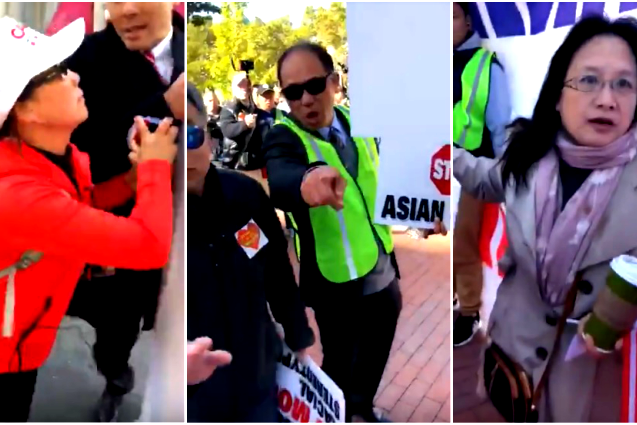An Asian American incoming college student is being cheered on for his explanation of why he is in favor of ending affirmative action.
Landmark ruling: In a 6-3 decision on June 29, the
U.S. Supreme Court ruled that race-conscious admissions policies at the University of North Carolina and Harvard University violate the equal protection clause of the 14th Amendment.
The ruling marked a significant departure from over four decades of legal precedent that supported the
consideration of race in the admissions process.
An Asian American student’s perspective: Prospective Brown University student Alex Shieh articulated his support for the court’s decision during a guest appearance on a recent ABC News special report on the ruling.
When asked by host David Muir if the Supreme Court’s decision was the “right way to move forward,” Shieh called it a “win for students all across America.”
We shouldn’t be judging students based on race when we’re deciding who gets into what schools. I think that your previous guest is mistaken in this regard because I believe that by getting rid of affirmative action, we can now look at the individual student and what they’ve accomplished.
Shieh argued that under such a system, students were often viewed as representatives of larger racial groups. However, with the elimination of affirmative action, universities now have the opportunity to consider applicants on a more personal level, taking into account the obstacles they have overcome.
Discussing race in essays: Muir then raised a point by a previous guest, Duke University student Bunmi Omisore, that the ruling now lets students write about their race in their essays should they prefer the school to take this into account.
According to the court, universities may still take into account an applicant’s discussion of how race has influenced their life, as long as it is linked to a specific quality of character or unique ability that the applicant can contribute to the university.
Omisore had previously mentioned that writing about “those traumas and those very hard experiences” for college admissions is not fair.
Shieh acknowledges that race can play a role in how individuals experience the world but also emphasizes that it affects different people in different ways. He explains that allowing students the option to express the significance of race in their personal essays provides them with greater freedom to articulate their unique perspectives.
To have a blanket policy where everybody’s race is considered, regardless of individual circumstances, I don’t think that’s appropriate. I find that many arguments in favor of affirmative action are somewhat incongruous because I’ve heard people say that it’s a good way to overcome past discrimination. However, as an Asian American, I’m not exactly sure how that works for me because it’s much more difficult for Asian Americans to gain admittance to schools than for white students.
Shieh then adds that students should not be judged based on factors they cannot control, such as their race. Instead, he suggests that assessing students based on their character and accomplishments provides a fairer and more comprehensive evaluation.
Going viral: Clips of the interview have been widely shared
across platforms, generating thousands of views and comments, with many admiring Shieh’s eloquence and others sharing their own views on the matter.
“I am Asian and I completely agree with this man,” a commenter wrote. “Why is my race a reason to set certain standards? A truly fair society would never consider race as a factor of competence. This policy also reinforces the model minority stereotype and in many ways is a factor in the conflict among the various communities in this country.”
“As a black person I’d be horrified if someone offered me a position of importance due to race when there really was someone better suited to handle it,” another chimed in. “It sets up myself and so many others for failure. And for what? So you can pat yourself on the back and scream about how inclusive you are?”
“As an Asian I kind of feel conflicted,” commented a user on the original post. “I mean affirmative action’s intent sounded good as it gave traditionally racially discriminated and economically disadvantaged students a boost in admissions. As also someone who wasn’t born into a rich family where they had money to spend on ten of thousands of private schools, test prep, and college advisors, yeah I can see how black and Latino students do inherently have a disadvantage. However, as a recent college admit that has gone through this same process, applying to top schools with a pretty high SAT and GPA score, and then getting rejected from fourteen T25 schools… I can see how this policy also starts discriminating against Asians that do have those academics.”








